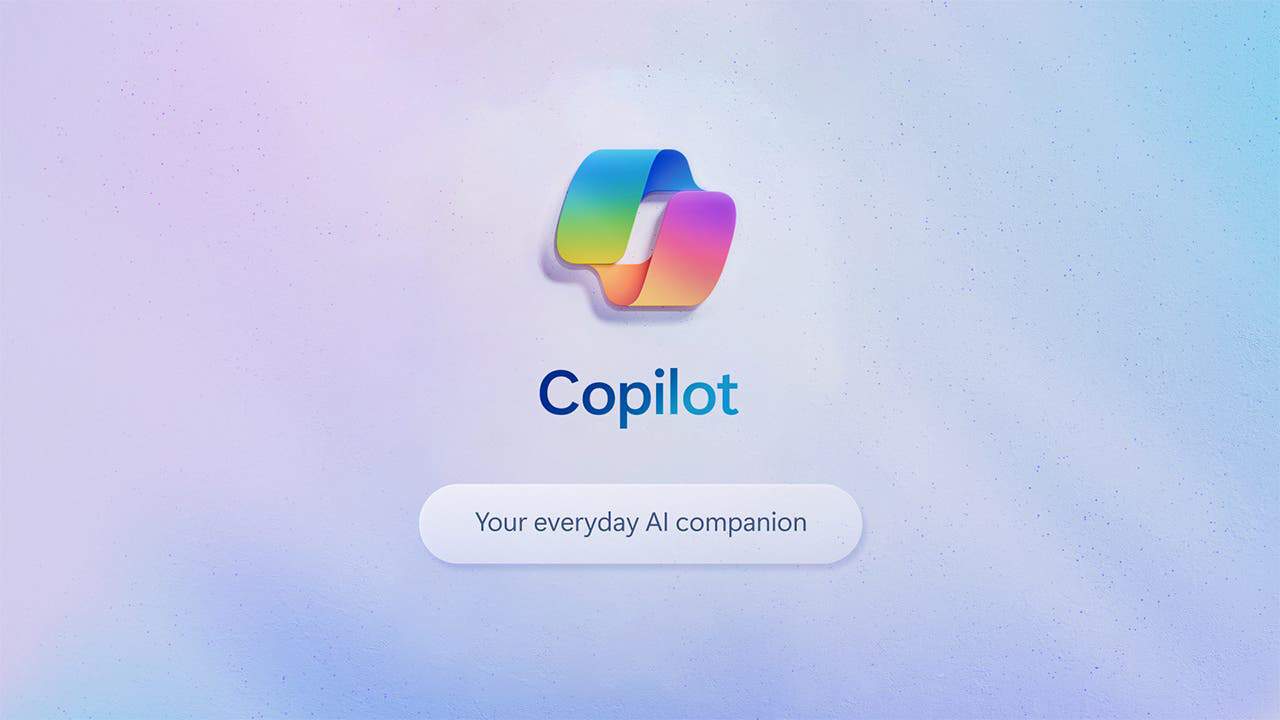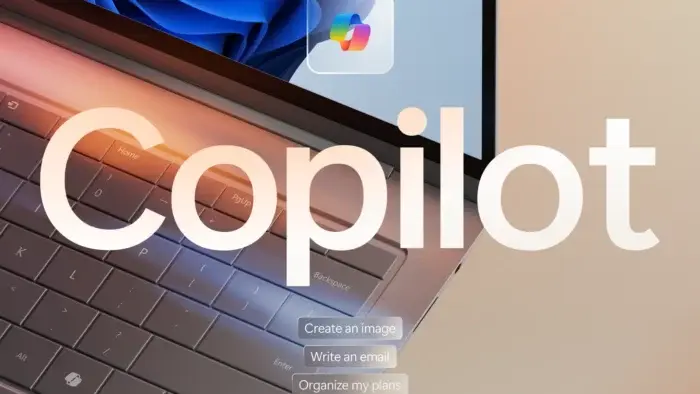Microsoft envisions 2024 as the pinnacle of AI integration into personal computing, embarking on this transformative journey by introducing a groundbreaking modification to the traditional PC keyboard. The focal point of this evolution is the introduction of the Copilot key. It’s a dedicated button on new laptops and PCs manufactured by Microsoft’s partners. This innovation serves as a direct conduit to Microsoft’s AI-driven Windows Copilot experience. Marking a significant departure from the conventional keyboard layout that has persisted for nearly three decades.
Windows Keyboard Makeover: The Copilot Key Takes Center Stage

The genesis of this milestone is rooted in Microsoft’s historical commitment to user interaction, with the introduction of the Windows key almost 30 years ago. Yusuf Mehdi, Executive Vice President and Consumer Chief Marketing Officer at Microsoft, reflects on this evolution, stating, “Nearly 30 years ago, we introduced the Windows key to the PC keyboard that enabled people all over the world to interact with Windows.” Mehdi perceives the Copilot key as another transformative moment in the evolution of Windows. Positioning it as the gateway to the AI realm within the PC ecosystem.
The Copilot key is poised to replace the menu key (application key) introduced alongside the Windows key decades ago. Positioned adjacent to the right-hand alt key on most keyboards, its placement may vary across different OEMs and markets. This strategic positioning aligns with Microsoft’s dedication to accessibility and ease of use. In a symbolic gesture reminiscent of their 2019 addition of a dedicated Office key, Microsoft is once again redesigning the keyboard to cater to the evolving needs of users.
So, the Copilot key’s primary function is to seamlessly launch the Windows Copilot integrated into Windows 11. This feature introduces a ChatGPT-like chatbot capable of answering queries and executing actions within the Windows environment. In regions where Windows Copilot is not yet available, the Copilot key will serve as a direct access point to Windows Search. Unlike the multifaceted functionality of the existing Windows key. It opens the Start menu or combines with other keys for various shortcuts, the Copilot key is, for now, a dedicated launch key. Microsoft’s future plans regarding the potential integration of the Copilot key with other keys remain uncertain.
While specific OEMs incorporating the Copilot key remain undisclosed, Microsoft is poised to unveil this development at the upcoming Consumer Electronics Show. Yusuf Mehdi teases the imminent debut, stating, “We’ll start to see the Copilot key unveiled on new Windows 11 PCs from our ecosystem partners, with availability beginning later this month through Spring, including on upcoming Surface devices.” Confirmation of a dedicated Copilot key on rumored Surface Pro 10 and Surface Laptop 6 models further validates the significance of this evolutionary leap in Microsoft’s hardware offerings.
From Start Menu to AI Integration: Meet Microsoft’s Copilot Key

So, the Copilot key encapsulates Microsoft’s broader strategy for the integration of AI into its ecosystem. Throughout 2023, the company laid the groundwork for Copilot’s integration into various facets of its software and services. The Copilot key is but one manifestation of the larger AI-powered changes anticipated for Windows in 2024. Mehdi envisions a paradigm shift toward a more personalized and intelligent computing future. Seamlessly weaving AI into Windows at every level, from system architecture to silicon to hardware.
Also, as part of its commitment to this AI-centric future, Microsoft is actively developing a Windows “refresh” focused on incorporating new AI features. The company aims to extend AI integration beyond specific features, making it an integral part of the entire computing experience. The recent branding of Microsoft Edge as the “AI browser” signifies the continuation of Microsoft’s concerted efforts. To infuse AI into every aspect of its offerings, reaffirming that the AI journey has only just begun.
In conclusion, Microsoft’s introduction of the Copilot key signifies a momentous shift in the landscape of personal computing. Users can anticipate a more intuitive, personalized, and intelligent computing experience. As the company propels itself into the year of the AI PC. The Copilot key is not just a modification to the keyboard. It symbolizes Microsoft’s commitment to ushering in an era where AI seamlessly integrates into every facet of the Windows ecosystem.
The potential concerns around AI integration in personal computing
While AI integration in personal computing holds immense promise, it also raises valid criticisms and concerns that need to be addressed. Here are some potential areas of concern:
Loss of control and privacy:
- Black box algorithms: Many AI systems operate as black boxes, making it difficult to understand how they arrive at decisions or predictions. This lack of transparency can raise concerns about user control and manipulation.
- Data collection and use: AI systems rely heavily on data for training and operation. This raises concerns about how personal data is collected, used, and stored, and the potential for misuse or breaches.
- Automated decision-making: AI systems are increasingly used for automated decision-making in areas like loan approvals, hiring practices, and criminal justice. This can lead to issues of bias, discrimination, and lack of accountability.
Security and safety:
- Vulnerability to attacks: AI systems can be vulnerable to hacking and manipulation, which could have serious consequences for personal data and security.
- Job displacement: Automation through AI could lead to job losses in various sectors, raising concerns about economic instability and social unrest.
- Unforeseen consequences: The complex nature of AI systems makes it difficult to predict all potential consequences of their deployment. This raises concerns about unintended negative impacts on individuals and society.
Ethical and philosophical considerations:
- Human-machine relationships: The increasing reliance on AI raises questions about the future of human-machine interactions and the potential for dehumanization.
- Artificial consciousness and sentience: As AI advances, the possibility of artificial consciousness and sentience emerges, leading to complex ethical questions about the rights and treatment of AI systems.
- The role of AI in society: The widespread adoption of AI raises questions about the values and goals that should guide its development and use. This includes considerations of fairness, equality, and the potential for AI to exacerbate existing societal inequalities.
It’s important to note that these are potential concerns, and not all of them will necessarily materialize. However, it’s crucial to have open and informed discussions about these issues to ensure that AI integration in personal computing takes place responsibly and ethically.






this is the best keyboard and it is always helpful to do best inputs
trading platform online